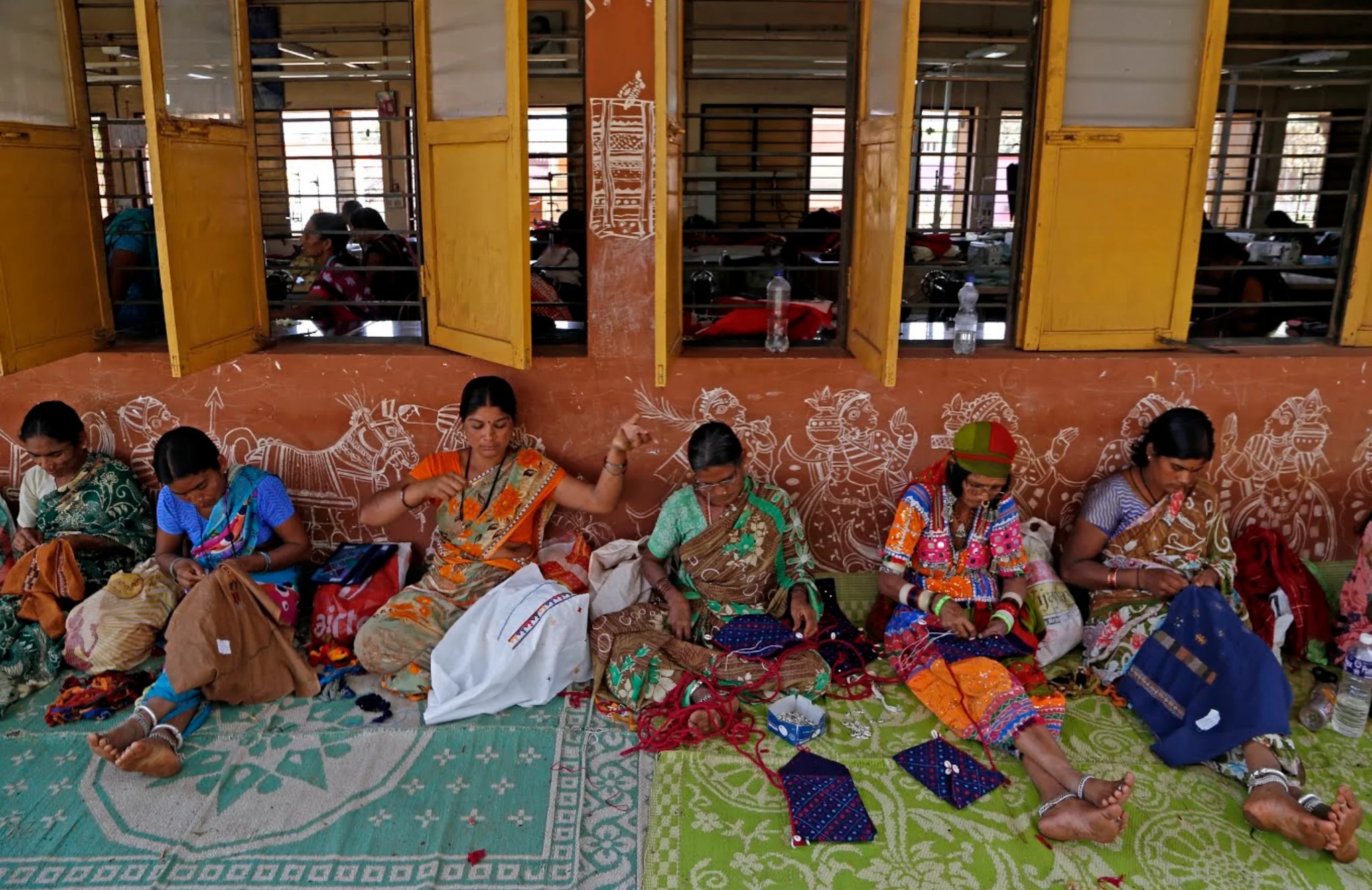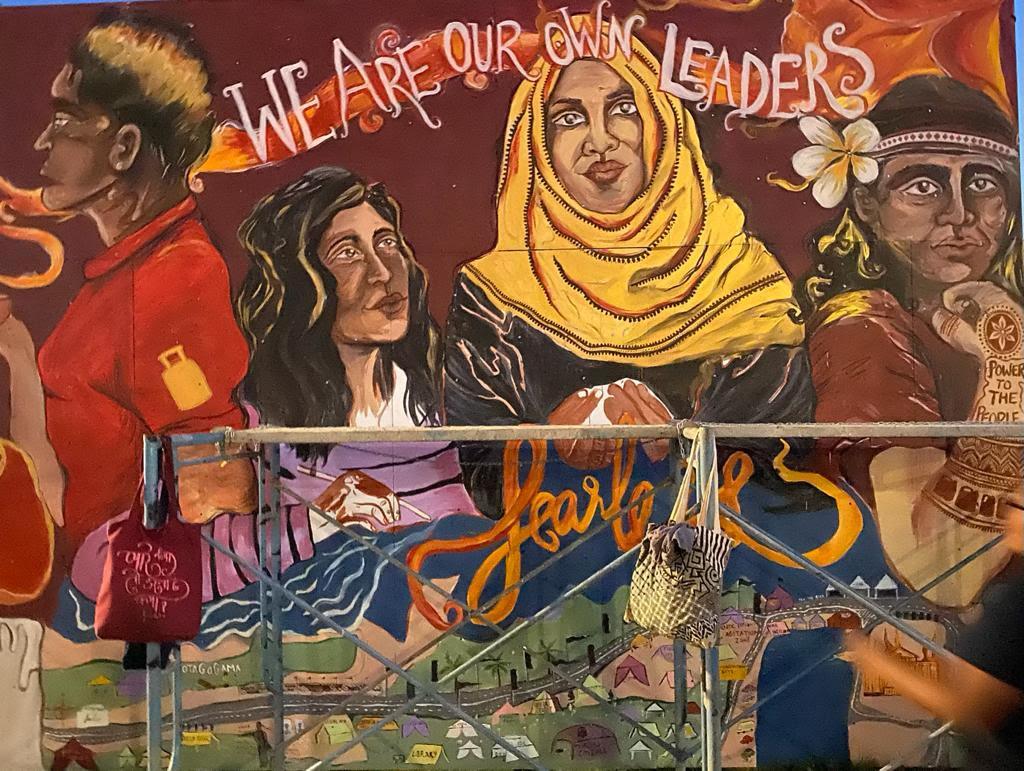Inspired by her community work with adivasi people, Niha Elety, founder of Tega Collective, wanted to find a way to fuse her passion for visual arts, fashion, and design to create a purpose-driven organisation. Their first two collections were co-created with Lambani tribal artisans, in collaboration with Sandur Kushala Kala Kendra, an NGO that aims to amplify Lambani craft. The collection used handwoven fabrics, and incorporated intricate Lambani embroidery including, mirror and cowrie work, to relaxed basic garments, taking inspiration from the tribe’s use of vibrant hues and rich culture.

Breaking away from the western monochromatic styles, the Lambani community tends to express their cultural heritage through colourful garments and ornamentation. With over fourteen types of embroidery patterns, many of their garments are often considered bohemian, and are quite popular among global consumers. Given the uniqueness of the craft, the Government of India accorded a Geographical Indication tag (GI tag) to Sandur Lambani embroidery in an effort to preserve the craft (2). As such, social enterprises such as Tega Collective not only contribute to these efforts of preservation, but also provide a platform for these local artisans to showcase and celebrate their culture.

To empower local artisans, Tega Collective funnels 18% of their profits to adivasi communities, out of which 15% goes directly to artisans, and 3% to local NGOs that support the adivasi community on regeneration and land-back initiatives (3). They also run the Adivasi Knowledge Fund (4), which, in collaboration with the Center for Indigenous Knowledge and Learning, supports the documentation of adivasi oral histories, folklore, and climate change knowledge to preserve and share with generations to come.

Tega Collective continues to uplift communities, while preserving and celebrating 4000 year old traditions home to Adivasi communities in India. Not only do they empower these local artisans, but they meaningfully engage them to co-create timeless pieces, weaving in rich history and cultural influences. With sustainability as a core value, Tega Collective brings back slow fashion to safeguard this craft, creating transformative change in local communities.






%201.png)
















